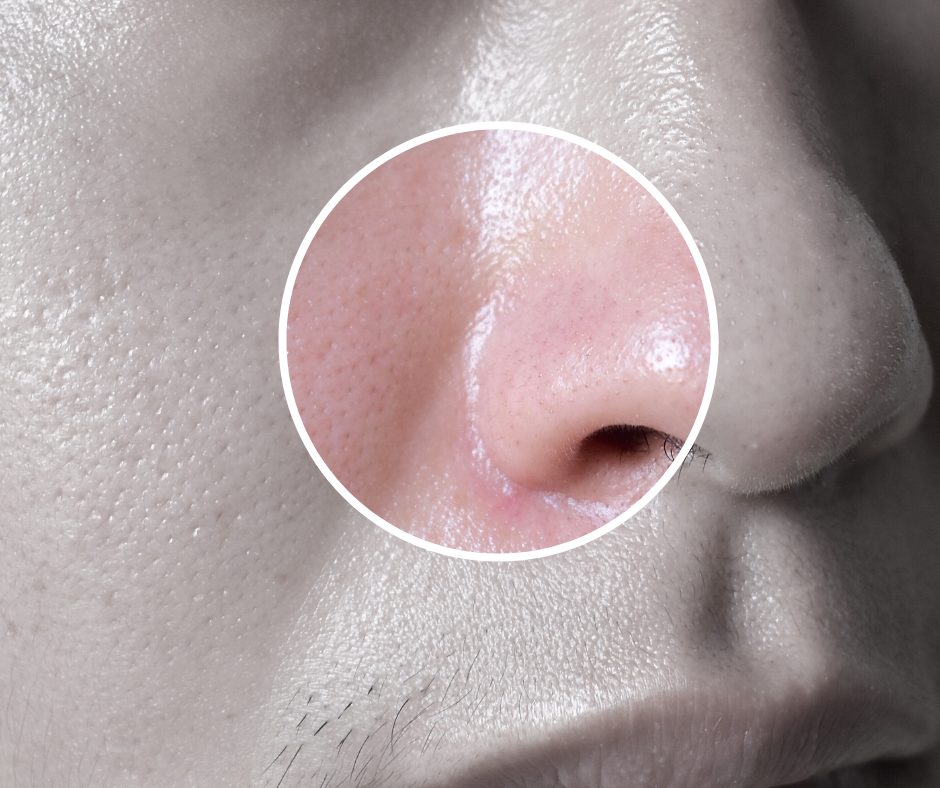Oily Skin
What is Oily Skin?
Oily skin occurs when the sebaceous glands produce excess sebum, the natural oil that keeps the skin lubricated and protected. While sebum is essential for maintaining a healthy skin barrier, an overproduction can lead to issues like congestion, blemishes, and an unwanted greasy appearance.
Although having oily skin is genetically determined; which means you can’t change your skin type; you can take steps to balance excess sebum production, reducing the shine and minimising related concerns.

Symptoms
- Persistent shine, particularly in the T-Zone (forehead, nose, and chin)
- Enlarged pores that are visibly noticeable
- Frequent acne breakouts due to clogged pores
- Rough skin texture, often with blackheads and whiteheads
- Difficulty keeping makeup in place, as it can slide off or cake
- Skin that feels greasy shortly after cleansing

Causes
- Genetics: Oily skin often runs in families and is linked to an increased number of sebaceous glands.
- Hormonal Fluctuations: Hormones, especially androgens, can increase sebum production, particularly during adolescence, menstrual cycles, and pregnancy.
- Environmental Factors: Humid climates can cause the skin to produce more oil.
- Diet: A diet high in sugars and processed foods can exacerbate oiliness.
- Stress: Stress can trigger hormonal changes, leading to increased oil production.
- Improper Skincare: Using products that strip the skin of its natural oils can lead to a rebound effect, where the skin produces even more oil to compensate.
Recommended Treatments For Oily Skin
Previous slide
Next slide
Why choose SkinHD to treat my Oily Skin?
- Over 20 years combined medical knowledge and experience
- Champions of natural looking results
- Honest and genuine advice – we’ll never suggest treatments you don’t need!
- No hard-sells or pushy sales techniques
- Friendly and family run clinic in South Manchester
- Loyalty programme, earn as you spend, referral scheme and birthday bonuses!
- Payment options available through Klarna
